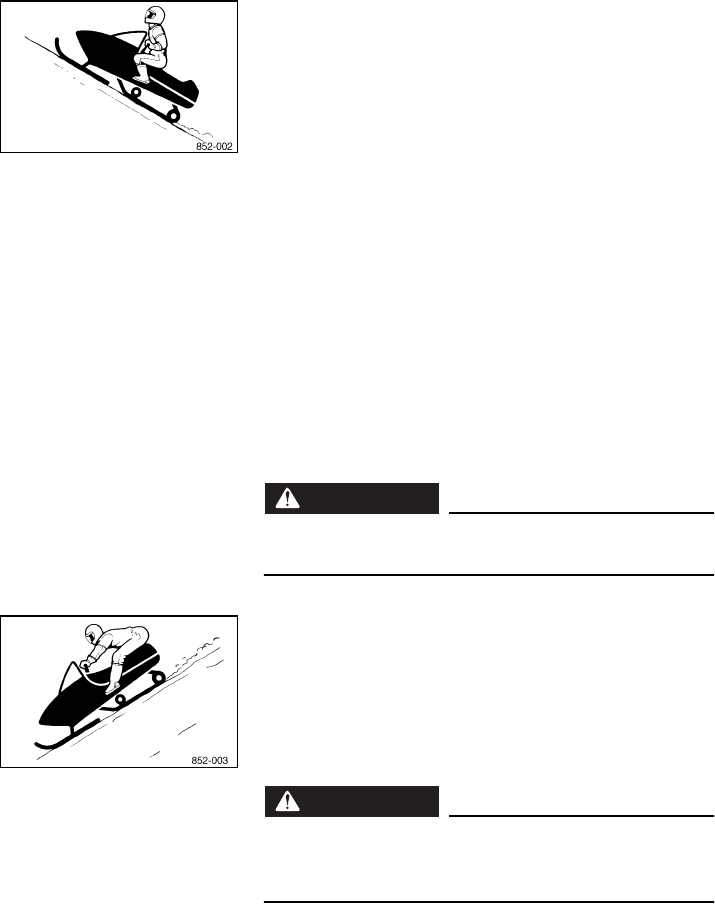
7-7
Remember:
Avoid higher speeds until you are thoroughly familiar with
the operation of your snowmobile.
Riding uphill
You should practice first on gentle slopes. Try more diffi-
cult climbs only after you have developed your skill. As
you approach a hill, accelerate before you start the climb,
and then reduce the throttle opening to prevent track slip-
page. It is also important to keep your weight on the
uphill side at all times. On climbs straight up the hill this
can be accomplished by leaning forward and, on steeper
inclines, standing on the running boards and leaning for-
ward over the handlebar. (Also see “Traversing a slope.”)
Slow down as you reach the crest of the hill, and be pre-
pared to react to obstacles, sharp drops, or other vehi-
cles or people which may be on the other side. If you are
unable to continue up a hill, do not spin the track. Stop
the engine and set the parking brake. Then pull the rear
of the snowmobile around to point the snowmobile back
down the hill. Do not get on the downhill side of the
snowmobile. When the snowmobile is pointed downhill,
restart the engine, release the parking brake, and
descend the hill.
WARNING
@
Side hills and steep slopes are not recommended for
a novice snowmobiler.
@
Riding downhill
When riding downhill, keep speed to a minimum. It is
important to apply just enough throttle to keep the clutch
engaged while descending the hill. This will allow you to
use engine compression to help slow the snowmobile,
and to keep the snowmobile from rolling freely down the
hill. Also apply the brake frequently, with light pressure.
WARNING
@
Use extra caution when applying the brake during a
descent. Excessive braking will cause the drive track
to lock, causing a loss of control.
@
E_8DG.book Page 7 Friday, June 29, 2001 4:20 PM


















